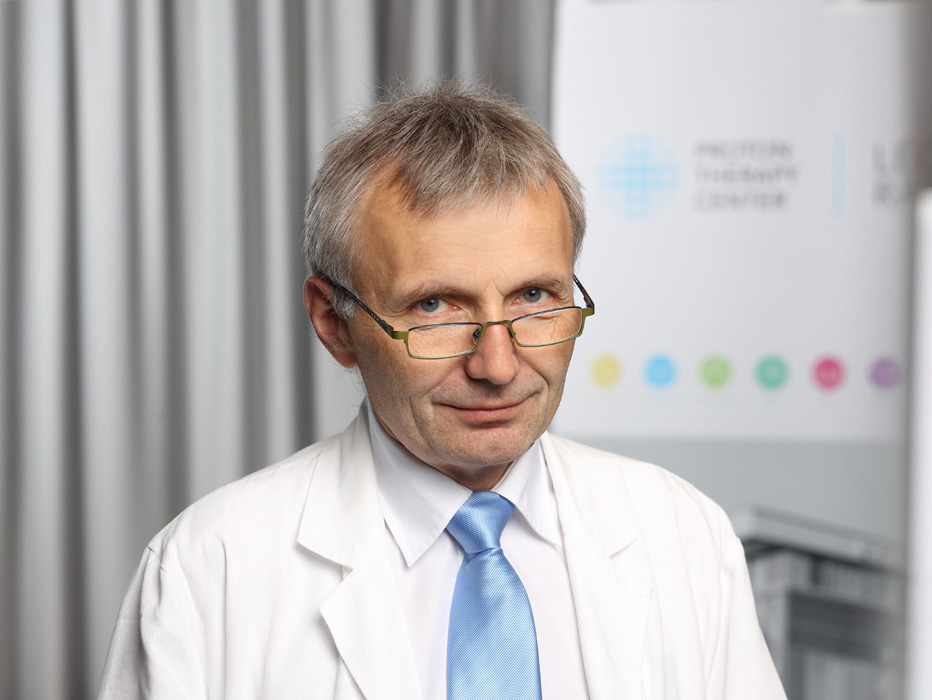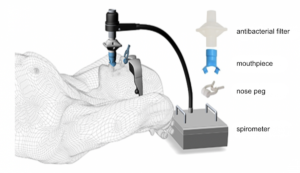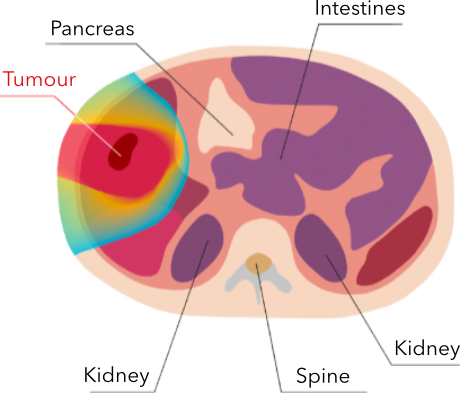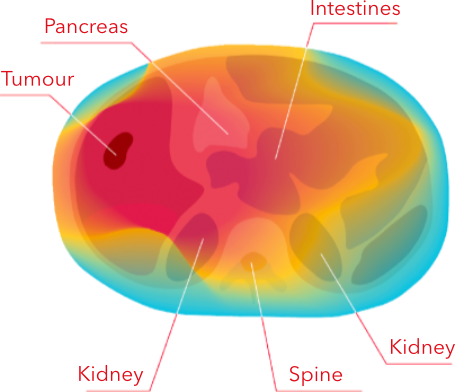
Proton therapy is an increasingly recognised and preferred method in the world. The results of the world’s proton centres and the Prague Proton Therapy Center clearly confirm that proton therapy opens up completely new possibilities for the treatment of cancer.
Radiotherapy of primary liver tumours is a relatively new method which has thus far not been used frequently. In case of hepatocellular carcinoma, and regarding the location and extent of involvement, an effective radiation dose often cannot be applied via any other means but protons. Proton therapy considerably reduces exposure of the tumor surroundings to radiation; therefore, it gives patients a greater chance of recovery.
DIBH: The Controlled Breathing Method
As respiratory movements may impair the correct and precise execution of proton irradiation, in the treatment of liver cancer we also use the method of controlled breathing. For this, we use the Dyn’R.
The controlled breathing method has been chosen because it is important that the irradiated area of the body and the target volume of the tumor are irradiated the same way during each fraction. Since this irradiated volume varies depending on breathing, we need to ensure that the patient’s body is always in the same position. This is best done by holding their breath at a certain level. To determine this level, the patient first undergoes a controlled breathing training (Dyn’R training).
The controlled breathing training is done lying down on the back after being connected to the spirometer, using an antibacterial filter and a mouthpiece. The patient’s nose is held closed by a pin so that all exhaled air flows through their mouth. The patient also wears special glasses, where they see the breathing pattern to follow. The training is conducted by an experienced assistant and the patient has nothing to worry about.
During each irradiation, the patient lies on the radiation table the same way they did during the training, and breathes with the DIBH technique. If the patient accidentally does not manage to hold their breath for the required 20 seconds, they do not have to worry. If they breathe out, the device will detect it and stop irradiation automatically.
Advantages of proton therapy over conventional radiotherapy
Proton therapy is more gentle because it can reduce the burden of unwanted radiation on surrounding tissues and organs and thus significantly reduce the risk of complications associated with treatment. It allows the use of radiotherapy even in diseases (conditions) that were previously impossible to treat with conventional radiotherapy.
Proton therapy:
- minimises exposure of the bladder and kidneys, small intestine and other abdominal organs;
- minimises radiation doses to the spinal cord;
- allows to reduce the number of fractions and shorten the irradiation time, which leads to a further reduction in the risk of various complications;
- allows the delivery of a higher dose of radiation and thus increases the chances of tumor destruction.
|
PROTON IRRADIATION Protons target the tumour directly, sparing healthy tissues and organs from unwanted effects. |
PHOTON IRRADIATION
|
Proton therapy in Prague
In order to choose the optimal treatment, it is important to receive comprehensive and comprehensible information.If radiation is considered as part of your treatment, ask the treating oncologist about all the available irradiation methods as well as treatment-related side effects. These may significantly affect the quality of your life during and after treatment. Our physicians have many years of experience in radiotherapy. Moreover, they are experienced in both standard (photon) and proton radiation therapy and are prepared to answer all of your questions. Do not hesitate to contact us.
The treatment is outpatient, and you come to the Proton Therapy Center for radiation and regular check-ups during treatment. One visit takes about 60 minutes while the radiation is a matter of a few minutes. Prior to each radiation session, we carefully check your position using X-ray scans and carry out certain other checks necessary to commence irradiating. At least once a week, you undergo check-ups with the physician who will go through the treatment progress with you and check your condition.
In most cases, treatment takes about 15 fractions (doses), according to the regime determined by the physician on the basis of the initial assessment and other diagnostic tests.


 Photons irradiate the tumour as well as the healthy tissues and organs around it.
Photons irradiate the tumour as well as the healthy tissues and organs around it.